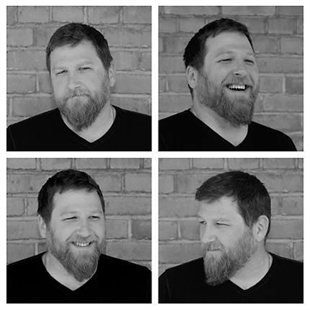
(ADAM PROSKIW / iNFOnews.ca)
September 25, 2015 - 2:04 PM
'THEY DON'T REPRESENT OUR RIDINGS TO PARLIAMENT. THEY REPRESENT THEIR PARTY TO OUR RIDINGS.'
Yesterday, columnist Chuck Poulsen touched on a question I’ve been pondering for weeks now.
He broke out some of the promises and numbers being thrown around by federal party leaders on the campaign trail and wonders how individual voters are supposed to assess these promises and make decisions.
Everyone asks who are you voting for. The better question is how do you vote? As in, how do you decide who to vote for?
As Chuck points out most of these issues are well out of the realm of work-a-day Canadians.
"The F35 fighter jets have popped up again," Poulsen wrote as one example. "Harper wants them, Justin doesn’t. Mulcair wants nothing more serious than a pillow fight. Who knows what’s right? If you think you have the answer, tell me how many tanks the military should buy? How many grenades? How many bullets should the Armed Forces buy this year? 50 million? 100 million?”
You can answer that with a little arrogance, I suppose, though you’re probably kidding yourself. If you vote based on narrow issues like this, chances are you are a partisan voter. Partisans are the logical gymnasts who simply believe in their leader, their party no matter what they do.
They arrive at their party not because of individual issues but because of an underlying ideology. They are right-of-centre or left-of-centre and cast their votes accordingly.
My instinct and experience tells me even those party supporters don’t vote for a party of choice. Like everyone else, they vote against the parties they don’t like. That’s often the burden of the incumbents: Most votes are based on the performance of the party in power. And when they are voted out, it’s often in flames. In 1993, the Progressive Conservatives went from a massive majority to just two seats and ceded power to the Jean Chretien Liberals. When Canadians grew tired of the Liberals in 2004, they lost 33 seats and another 30 in 2006.
These reasons more than most, I think, inform the vote in 2015.
So ask people who they are voting for and most will tell you either Stephen Harper or Tom Mulcair or Justin Trudeau or Elizabeth May.
But this is the maddening part about federal politics: You won’t find those names on any ballot around here. No, you are stuck with a bunch of people you probably never heard of.
We’ve got candidates running around our ridings knocking on doors, attending all candidates debates and sticking signs on lawns and boulevards, but nobody ever votes for them.
I am impressed at the resumes and the calibre of many of the candidates in the Thompson-Okanagan. Some pretty smart, accomplished people. Too bad nobody cares and why should they? For all its flag waving and proud declarations of democracy, truth is there’s very little like democracy in majority governments. All power is centralized in the Prime Minister’s Office. The party and its leader calls all the shots and their MPs just pound desks in Parliament.
So what to do with irrelevant local candidates? They don't represent our ridings to Parliament. They represent their party to our ridings. Watch them. Listen to them. If they’re at all ambitious, they follow the script, the talking points and the platforms and nothing else. The party comes first and I’m not sure there is a second.
I have to think individual candidates are like the rest of us. We are forced to choose between two or three or, fine, maybe four legitimate parties. You can choose yours based on ideology or individual policies — but you are stuck with the entire bag of goods whether you like them or not.
Shouldn’t local candidates speak about that? Tell us which policies they agree with and which they’d fight to change within their own party?
It's the immovable nature of party politics in this country. It makes for one difficult decision on Oct. 19.
So I am curious — how do you decide who to vote for?
— Marshall Jones is the editor of infonews.ca
News from © iNFOnews, 2015